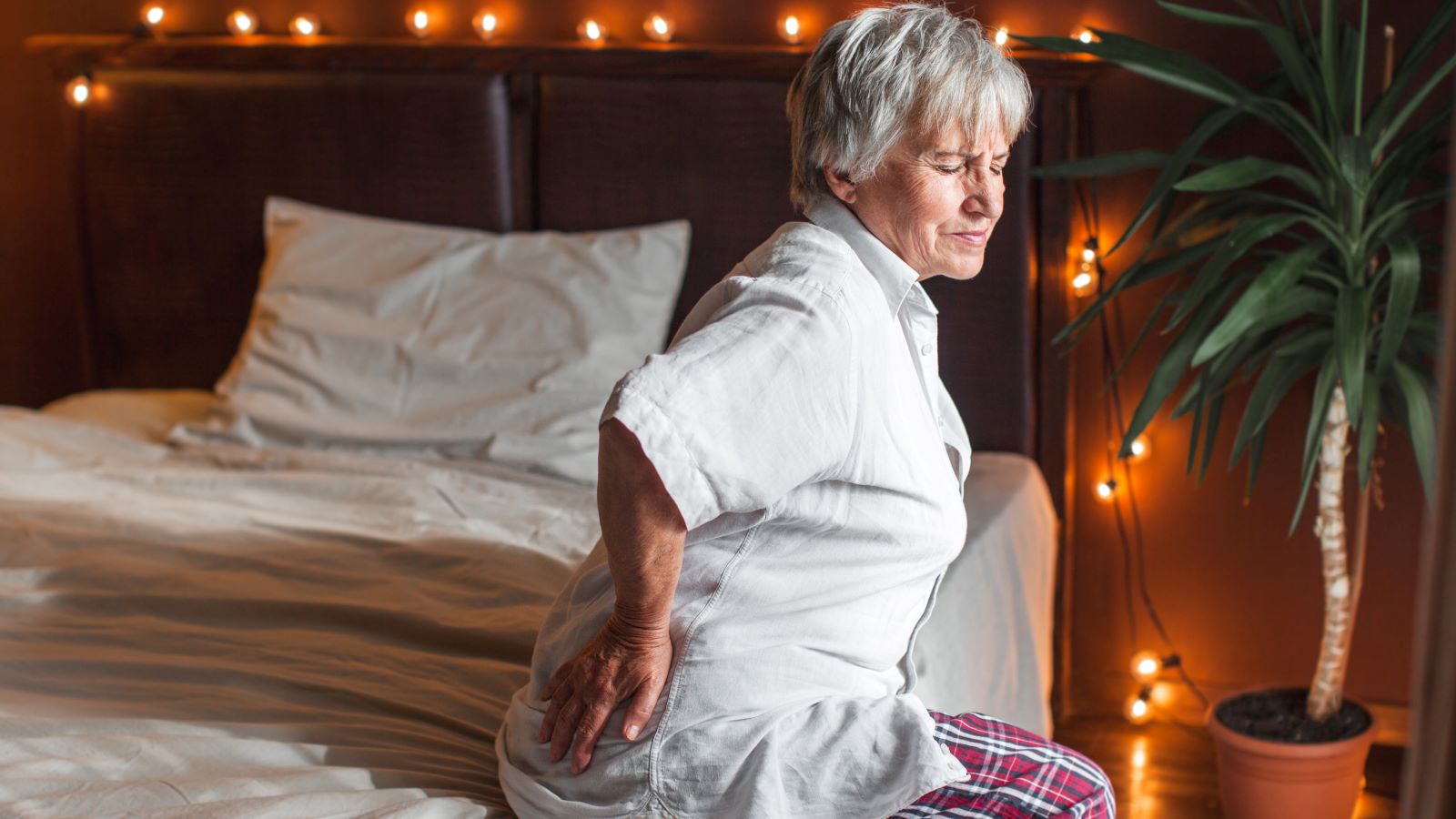Hip pain can make it tough to get comfortable – especially at night. Whether the ache is in your joint, groin or thigh, the pain can leave you tossing and turning instead of getting the rest you need.
But better sleep is possible. Mark Shekhman, MD, an orthopedic surgeon at the Bone & Joint Institute at Hartford Hospital, shares a few simple ways to ease the pain and get some shut-eye.
1. Make sure your mattress is working for you.
Just like Goldilocks, your mattress might be too soft or too firm for your hips.
“To get it just right, look for a medium-firm mattress,” says Dr. Shekhman. “It’ll provide support while conforming to your body’s natural curves.”
2. Switch up your sleeping position.
If your go-to position makes hip pain worse, try a new one.
“Sleeping on your back with a pillow under your knees, or on your side with a pillow between your knees, can help align your hips and reduce pain,” says Dr. Shekhman.
Adjusting your position is one of the easiest ways to sleep with hip pain and minimize pressure on the joint overnight.
> Related: How to Choose the Right Pillow for Neck Pain
3. Do a few gentle stretches before bed.
This one does double duty – it’s relaxing and it helps with pain.
“Stretching can help loosen tight muscles around the hip area,” says Dr. Shekhman. “Even five minutes a night can make a difference.”
4. Use a warm or cold compress for relief.
Not sure what your hip needs? Go by how it feels.
“If the area’s inflamed, a cold pack can help numb the pain,” says Dr. Shekhman. “But if you’re feeling tight and sore, some warmth can offer relief.”
Think warm, moist heat – like a towel fresh out of the dryer. Stay cautious with heating pads – the hot water inside them can cause burns.
5. Take over-the-counter pain medications.
When the ache is strong, medication can help you finally fall asleep.
“Over-the-counter pain relievers like ibuprofen or acetaminophen can be effective,” says Dr. Shekhman. “Follow the dosage and track how often you need them to sleep. You don’t want to rely on them too much.”
When to see your doctor.
If your hip pain is severe, constant or comes with other symptoms like swelling, redness or fever, it’s time to get checked out.
And if the pain’s affecting your day-to-day life – or your nights – don’t wait.
“When you come to see us, it’s the best chance to pinpoint what’s causing your discomfort,” says Dr. Shekhman. “From there, we’ll create a treatment plan to help you get back to doing what you love.”



